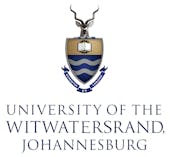Born in Germiston, South Africa, Duncan Mitchell now is Emeritus Professor of Physiology at the University of the Witwatersrand, Johannesburg, and Honorary Professorial Research Fellow in its Brain Function Research Group, from the directorship of which he retired in 2006. He is Adjunct Professor in the School of Human Sciences at the University of Western Australia, Perth. Before joining the University of the Witwatersrand in 1975, he was on the scientific staff of the National Institute for Medical Research, London, England, and of the Research Organization of the Chamber of Mines of South Africa. His research started in the field of applied human physiology of deep-level mining, and he has added research in neurophysiology, fever physiology, and ecophysiology to a lifelong career in thermal physiology. His interest in neurophysiology has led to a parallel research programme in pain pathophysiology and pharmacology. He has lectured in twenty six countries in the course of his career. He has supervised 43 PhD and MSc students, and published more than 290 papers. He was awarded the Harry Oppenheimer Fellowship in 2010 and an honorary Doctor of Science degree by the University of the Witwatersrand in 2012. In 2021 he co-edited "Thermal physiology: a worldwide history" on behalf of the American Physiological Society. With his colleagues and students at the University of the Witwatersrand, University of Pretoria and University of Western Australia, he currently is pursuing research in conservation physiology related to climate change.
Experience
-
–presentHonorary Professorial Research Fellow at the University of the Witwatersrand, Johannesburg; Adjunct Professor in the School of Anatomy, Physiology and Human Biology, University of Western Australia
Grants and Contracts
-
2014
- Role:
- Honorary Professorial Research Fellow at the University of the Witwatersrand, Johannesburg; Adjunct Professor in the School of Anatomy, Physiology and Human Biology
- Funding Source:
- National Research Foundation
- Johannesburg, South Africa
- Website
- @duncanwits
- Article Feed
- Duncan.Mitchell@wits.ac.za
-
For media enquiries,
duncanmitch@gmail.com - ORCID
- Joined


